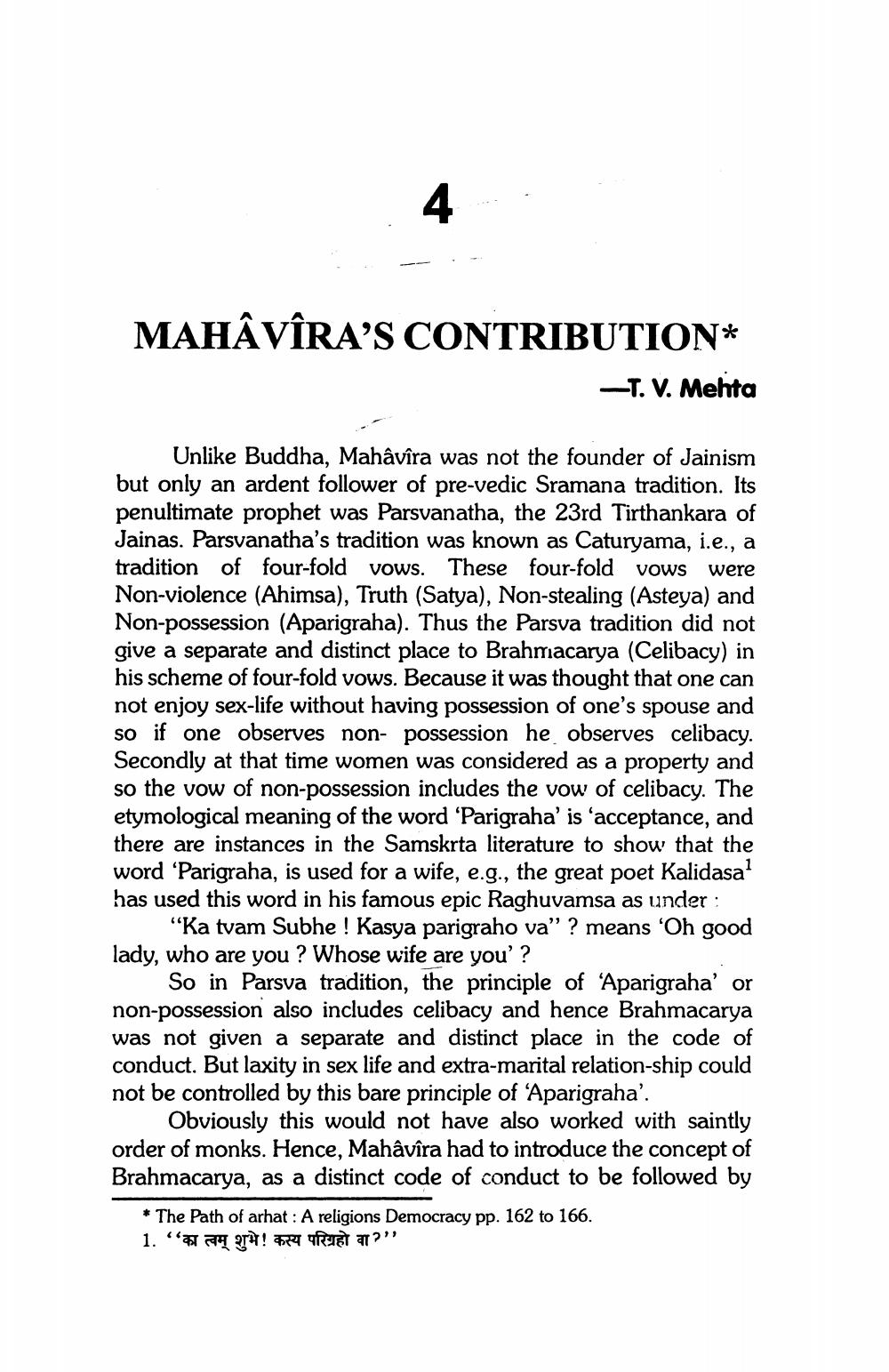________________
4
MAHÂVÎRA'S CONTRIBUTION*
-T. V. Mehta
Unlike Buddha, Mahâvîra was not the founder of Jainism but only an ardent follower of pre-vedic Sramana tradition. Its penultimate prophet was Parsvanatha, the 23rd Tirthankara of Jainas. Parsvanatha's tradition was known as Caturyama, i.e., a tradition of four-fold vows. These four-fold VOWS were Non-violence (Ahimsa), Truth (Satya), Non-stealing (Asteya) and Non-possession (Aparigraha). Thus the Parsva tradition did not give a separate and distinct place to Brahmacarya (Celibacy) in his scheme of four-fold vows. Because it was thought that one can not enjoy sex-life without having possession of one's spouse and so if one observes non- possession he observes celibacy. Secondly at that time women was considered as a property and so the vow of non-possession includes the vow of celibacy. The etymological meaning of the word 'Parigraha' is 'acceptance, and there are instances in the Samskrta literature to show that the word 'Parigraha, is used for a wife, e.g., the great poet Kalidasa1 has used this word in his famous epic Raghuvamsa as under:
"Ka tvam Subhe! Kasya parigraho va" ? means 'Oh good lady, who are you? Whose wife are you' ?
So in Parsva tradition, the principle of 'Aparigraha' or non-possession also includes celibacy and hence Brahmacarya was not given a separate and distinct place in the code of conduct. But laxity in sex life and extra-marital relation-ship could not be controlled by this bare principle of 'Aparigraha'.
Obviously this would not have also worked with saintly order of monks. Hence, Mahâvîra had to introduce the concept of Brahmacarya, as a distinct code of conduct to be followed by
* The Path of arhat: A religions Democracy pp. 162 to 166. 1. “ का त्वम् शुभे ! कस्य परिग्रहो वा ?"




